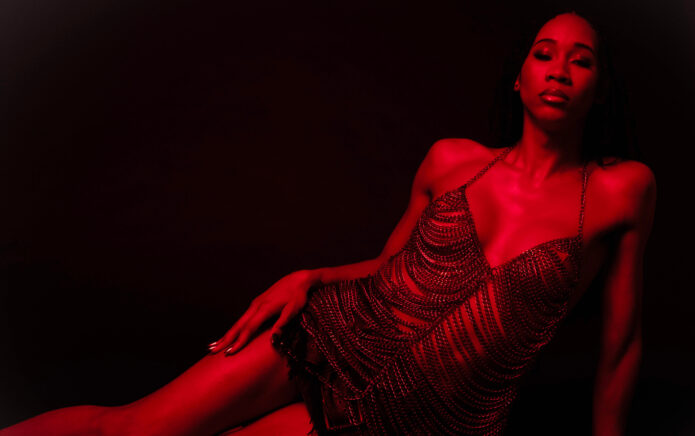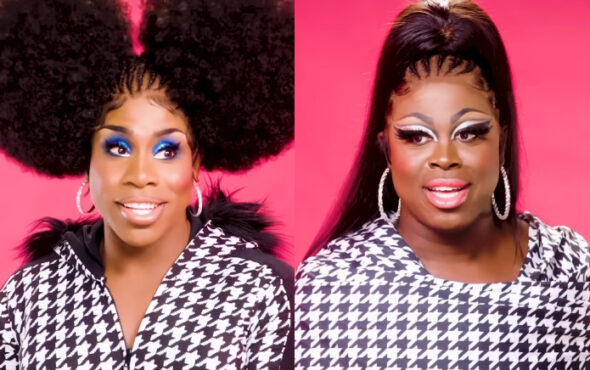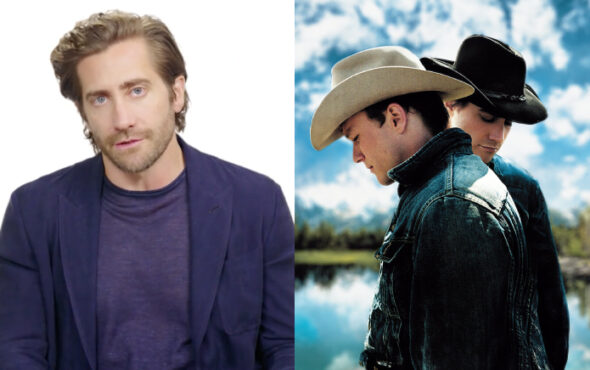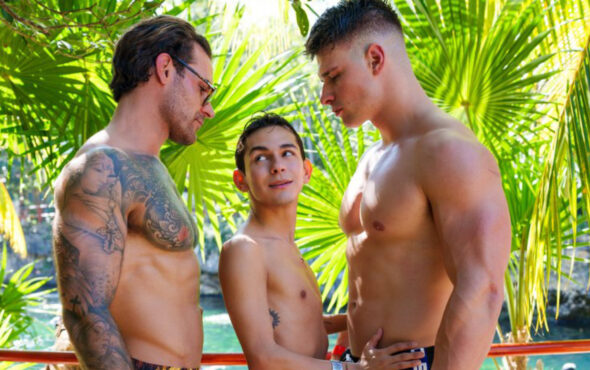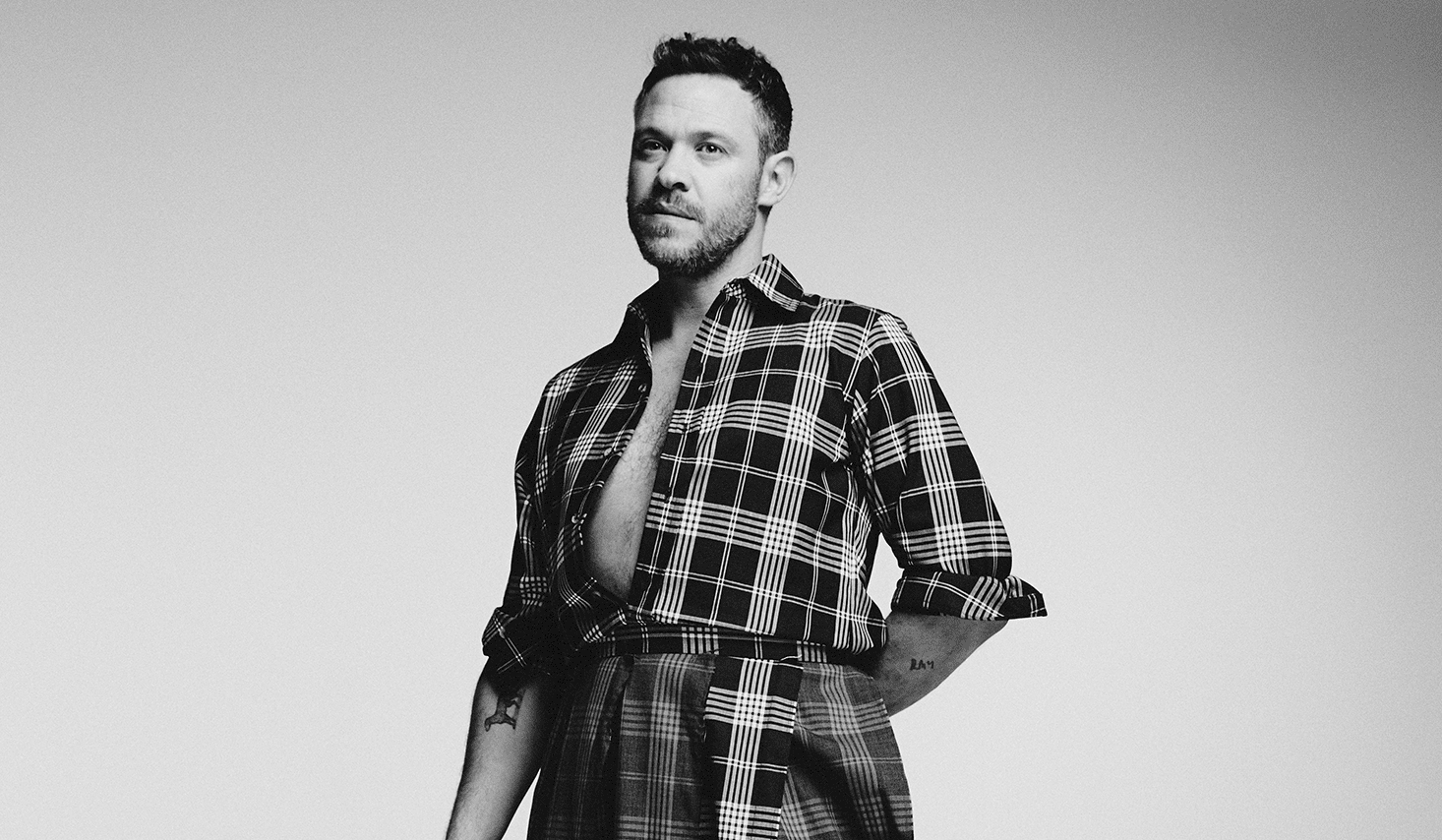
When the world went into lockdown earlier this year, Will Young was in Los Angeles. “I kept on getting cast as a weasel in different things,” he laughs down the phone, now back home at his place in Cornwall. “I’m not sure what that was about.” He’s had a busy year despite the lockdown. He had a handful of auditions in Hollywood for some future animated films, he’s already started working on a further two books, and has even squeezed in some time to start writing new music. But the global pandemic delayed the release of his new book, To Be A Gay Man, which is finally getting its release on 3 September.
The insightful memoir focuses on Will’s struggle with gay shame. He retraces moments in his life that contributed to a toxic internalised shame that forced him to shy away from his sexuality, hoping to start a conversation with other gay men who may have suffered in similar ways. This isn’t a self-help guide by any means, but rather an exploration of how a heteronormative society can impact someone who doesn’t fit into that mould.
Here we speak with Will about the process of writing the book, the impact the mainstream media had on him as a gay man, and how the conversation around ‘coming out’ is changing for the better.
Congratulations on the book. I got through it quite quickly on the weekend and enjoyed it.
Glad to hear you got through it – that’s the first sign!
A lot of people won’t have any gay shame. So, that’s why I think I like to share as openly and authentically as possible.
Much of what you speak about in the book will resonate with gay men in one way or another. I wanted to talk about the process of writing this book though: did it help you in this ongoing journey of internalised shame?
I think I had gotten rid of a lot of it. I don’t think I could’ve written it if I hadn’t, it would’ve been too triggering and painful and overwhelming. I don’t think I could’ve given such an insight into my life and how all those different stages affected me. But then, remembering all these little bits, all these things that I’ve forgotten – partly because of life and partly because they were normalised in my history – all of those things were quite shocking for me. So it was more validating and was nice that I could fully see that it was wrong, a lot of the stuff that happened, and I genuinely felt sorry for myself. There’s the whole ‘love yourself’ thing, but it’s so easy to say that but harder to do it. I found it genuinely fascinating that all these little things can build up to create a narrative of disgust.
It’s also important to point out, although you say it in the first chapter, this is not a self-help guide, it’s just your experiences that may resonate with gay men and spark a conversation to bring about positive change.
That’s the whole thing about sharing anything; people who share from a place of ‘this will change you’ are doing it from an egotistical place. It might be well-meaning but still egotistical as you want to change people. I cannot change people, and my experience is my experience. A lot of people won’t have any gay shame. So, that’s why I think I like to share as openly and authentically as possible. And to make the book more three-dimensional, I think it’d be really interesting to create conversations. I’d love to make a space where people can share what they think, and even if I don’t agree or resonate with it, it’s still a form of connection. I think that’s really brilliant, and that’s one thing that I think gay men have not been allowed to have through the heteronormative world. We turn in on ourselves, but really we could connect more. I was surprised with how difficult it was for me to find a group that worked on gay shame specifically. I personally couldn’t find one.
I was shocked by that.
I couldn’t! I’ve been speaking to a couple of therapists and saying once the book comes out, would they’d be interested in looking into it. Especially the therapist that helped me with my gay shame.
Some gay men may not have gay shame, or are experiencing different levels of it and don’t realise yet. We’ve all grown up in this heteronormative world, no queer person has escaped the effect that can have, but we deal with it in different ways. So it feels like this is a conversation that should resonate with most LGBTQ+ people.
I think there’s also the side of someone who doesn’t want to face it, as it’s too painful. But I did have the sense that people on the whole, as a topic, have more interest in it now. And it came up a lot more when I was podcasting, and I noticed it coming more into every gay discussion.
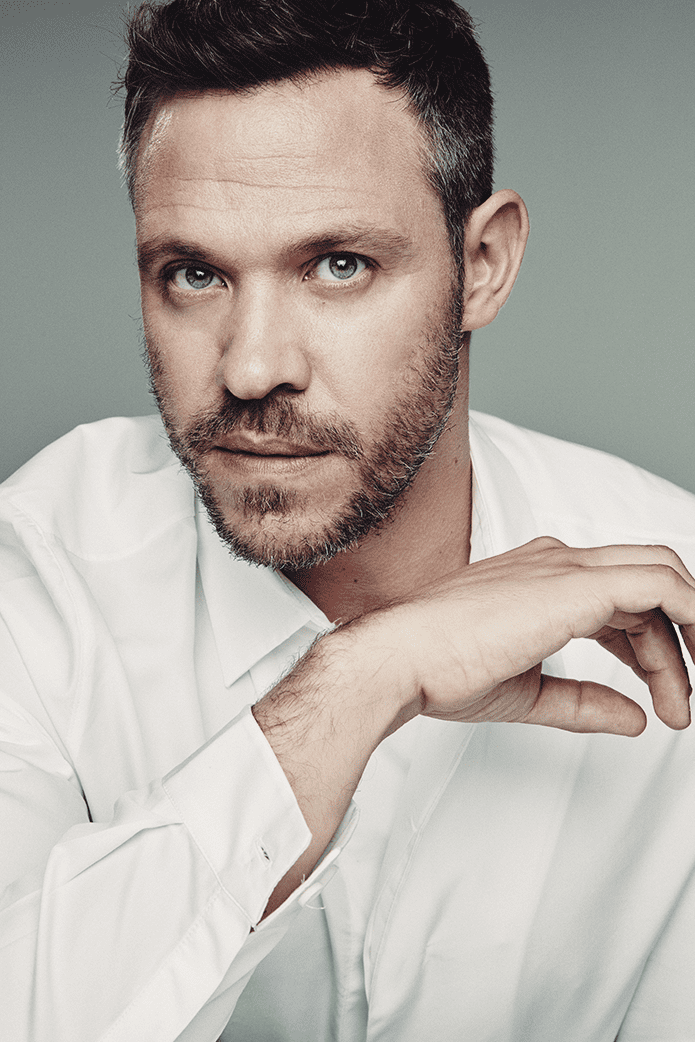
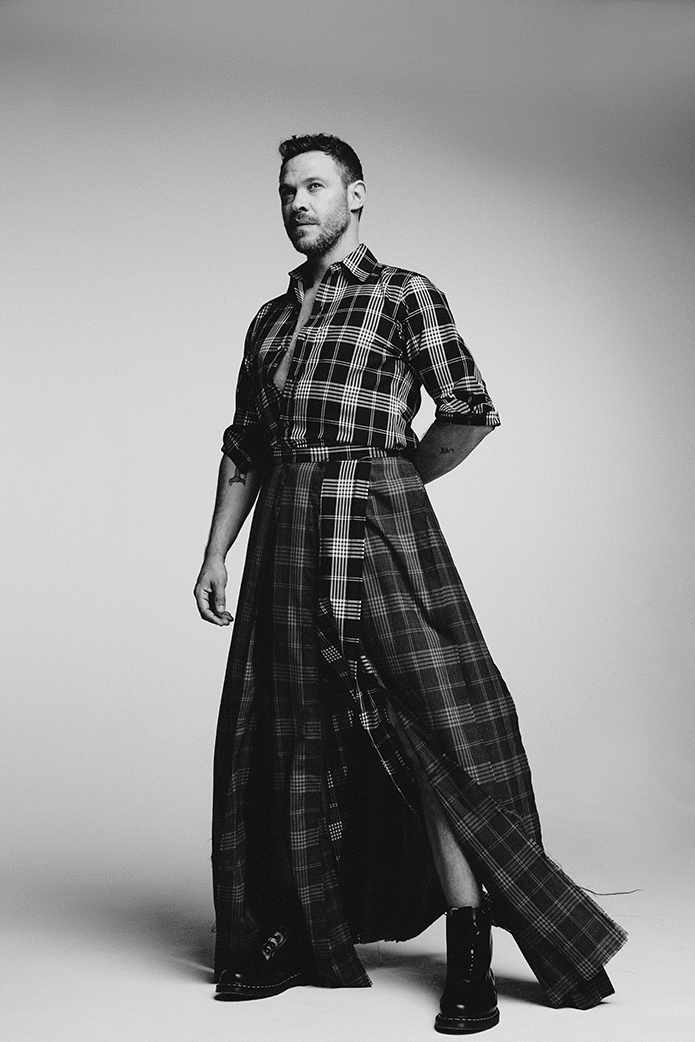
You make a good point in the book about gay social spaces centring around alcohol. I think there’s been a shift against that in recent years, but have you seen a shift in gay men having the willingness to join these community-focused groups?
I’ve noticed it particularly in sport, there’s so many more. I think there’s a stage with my friends that when we got to mid-30s, and we felt ‘Do we want to be going out as much?’ but still wanting to socialise with gay men outside of one’s close friends. I know people who joined rowing teams, water polo teams, running clubs. I nearly made a basketball group, but didn’t. I blame my schedule, not talent! But there were gay men choirs and LGBTQ+ book clubs, and I think there has been a movement towards just hanging out with LGBTQ+ people in night life places. That was all that was ever provided before, as it was the only place allowed outside of your home. You’d drive past, and there’d be whispers ‘That’s a gay club’ and there’s no windows on it. I think it has changed, and I think for huge positive benefits, and that should be promoted more and more.
I agree. I don’t think people realise those groups are out there.
They don’t, and some people really want that! Some people used to think the only way to socialise with other gay people was to go on the prowl, to score or have sex with someone, and I experienced that to an extent. But they needed to know that there is a healthier way of being around people, while also wanting to be sexually active as an adult. You can do both, but everything is so tied up with clubs. When you think about it, if you’re going out for the first time being in a group of people with the same sexual preference, it might well be hedonistic and edgy – sex is in the air. I think it’s important to learn boundaries as men with other men. I might go on a rugby team, but I don’t want to be cruising in the showers. I didn’t cruise when I was in the showers on other teams. I looked at people’s dicks, but I wasn’t cruising! I think it’s important for gay men to learn boundaries, we’re not taught that when we come onto the scene. It’s ‘everything is up for grabs, anything goes’ and I’m not sure that’s healthy.
As a society we’re still a lot more Daily Mail/Telegraph than people would like to admit.
You also touch upon the process of ‘coming out’ and how it almost feels a bit dated now. We want to get to a place where people can just be themselves free of having to ‘reveal’ who they are. Do you think in a few years it will seem odd that we used to have that ‘coming out’ experience?
I think it’ll definitely happen. We have a mouse down here in Cornwall that we call Jennifer – there’s an interesting insight into my family for you! – and my youngest nephew was saying ‘Maybe Jennifer has a husband’ and I mentioned ‘Or a wife’. We need to normalise it so it doesn’t become such a big thing. In the past, for someone to be gay was a big drama. But if you take the drama out of it, hopefully it’ll be something that someone wants to share. I’ve noticed that when I look at pop music and the acting world – there’s no longer a label attached. For me, it’d be ‘gay pop star Will Young’ but it’s no longer spoken about, and that’s a good example and a benchmark for where we’re at. As a society we’re still a lot more Daily Mail/Telegraph than people would like to admit, but it’s way less than that now. I don’t think we’ll get to a day where people don’t say it, but the ferociousness and energy that comes with it will be tamer.
It’s the assumed peril of rejection that been supposed as the default reaction. I think we’ve seen great progress in how mainstream TV and film is treating LGBTQ+ people as they are finally treating them as fully-fledged characters rather than treating them as just a ‘coming out’ storyline.
When I saw you last I was talking to you about Sex Education and how they approached sexuality in that second series, and it was brilliant. It was so non-worthy and just part of a storyline of something else and just very very powerful.
The narrative has shifted away from ‘coming out’ to ‘coming-of-age’, so it focuses on a period of life rather than a moment.
It takes away the tragedy of it. The tragedy of the family not listening or the emotional pain, with that being the central focus. The dramas are conveying LGBTQ+ life really well, and it’s being presented correctly.
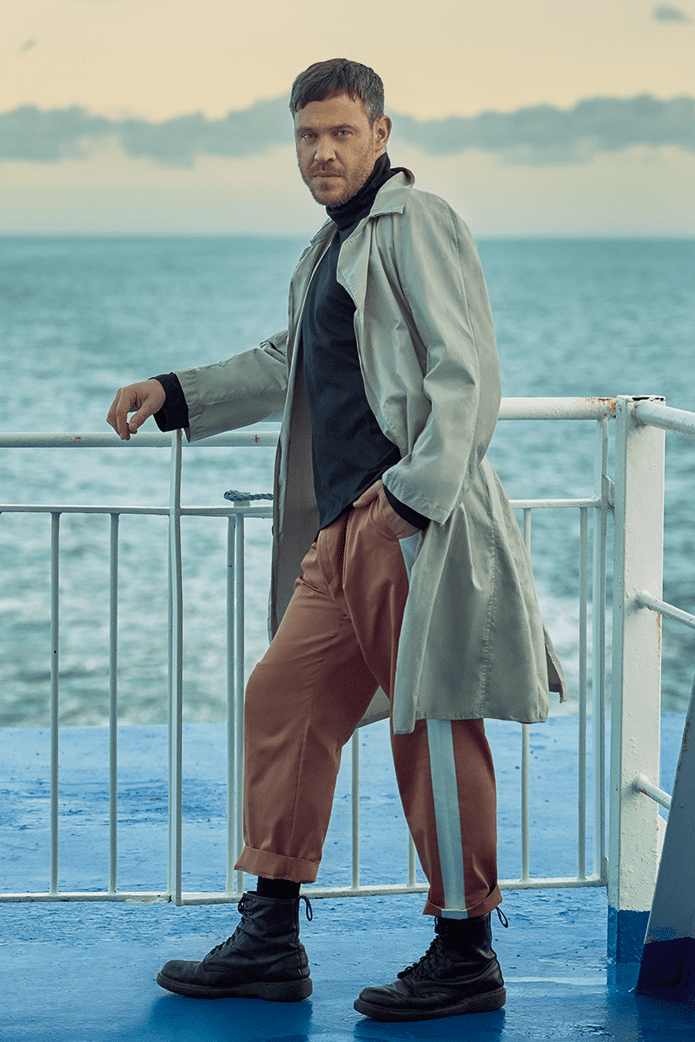
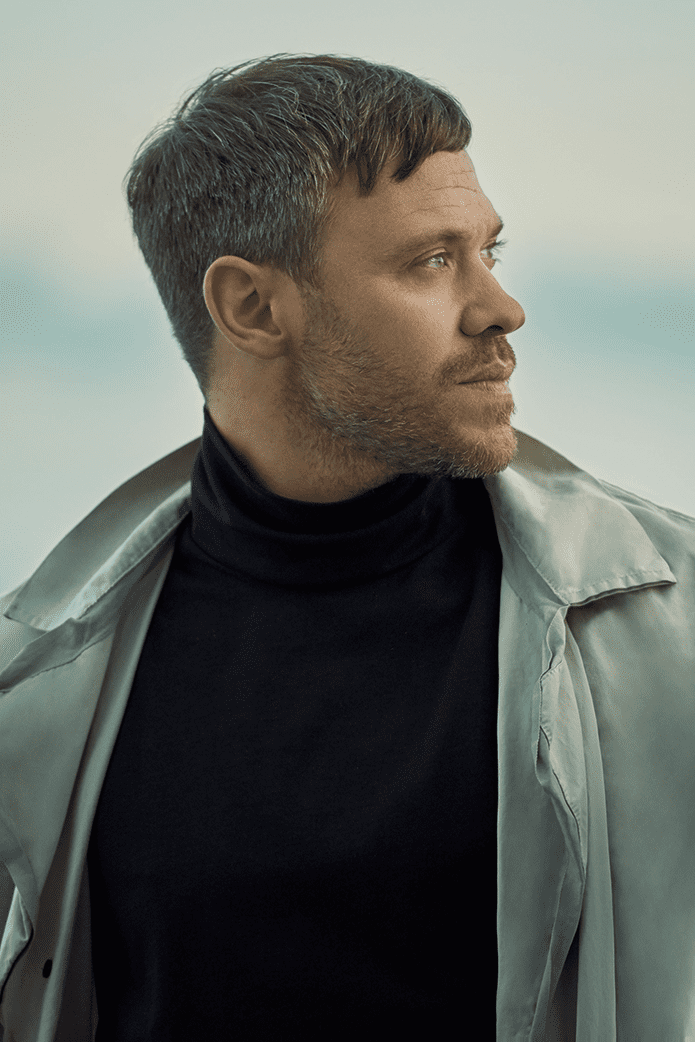
I want to touch upon how the tabloids reported on gay men in the 90s and 00s, and in the book you mention Stephen Gately in 2009 and the way his death was reported. You make a great point at the end of the book that that kind of toxic and insidious reporting of gay men back then is reminiscent of how trans issues are written about today. Have you given much thought about how we can challenge that kind of reporting today so that trans people don’t suffer in the same way that gay men did for decades?
I think one is legal recompense. It was very wishy-washy around that time. Someone might complain to OFCOM, but they don’t have much power and might go ‘We don’t like it, bad boy or bad girl’. There wasn’t really a law for hate speech or inciting hatred back then – that didn’t come into play until a lot later. You could sue for legal defamation, but no one did, because you were seen as being too sensitive. The law has changed, and that’s a big difference. I hope that the papers can’t get away with writing the same kind of rhetoric and that pseudo-passive-aggressive format. I do think people have to have allies, because people will always say ‘A Black person is going to complain because they’re Black’ or ‘They going to say it’s homophobic or transphobic because they’re part of the community’. I’ve always said that for homophobic bullying, I always wanted to a do a campaign where it was high-profile straight women and men doing the campaign alongside gay men, because people would take notice. I think transgender people need this support. Again, better education is needed. The JK Rowling thing was astonishing. It was just so stupid. I didn’t know she was so stupid. With transphobia or any kind of prejudice, it comes from a huge sense of emotional awareness and stupidity. It baffled me. What upsets me is that I wish – and this is the issue with Twitter or anything on social media – you get sides one way and sides the other, and it becomes trolls against trolls. So educated, well-rounded, curious and loving debate just doesn’t happen. It’s like it’s not allowed to happen. I wish we could move away from this dichotomy of where we are with debate. I wish we could get back to being eloquent and polite and not looking for clickbait headlines.
I sometimes think in these situations that social media strips people of their empathy. There needs to be so much more empathy in these discussions.
The empathy is stripped out, but how do you debate in 240 characters?
You don’t touch upon this in the book, but I’m also interested to hear how you think gay media during the 00s contributed to the wider problem?
That’s interesting. The only thing that springs to mind is the whole topless man on the cover of those magazines that make them look soft-porny. I think I remember back in the day worrying about those covers. I don’t think I did those.
The JK Rowling thing was astonishing. It was just so stupid. I didn’t know she was so stupid.
When did you do your first big gay magazine cover?
It was with my second album. It’s a dreadful picture of me in the bath. It’s nice photography, but just not of me. I was in the bath, but clothed. I don’t think I’ve ever done a topless cover, and I wouldn’t as I felt that would’ve been more damaging – even though any chance to whip them off, I’d love it. But I think I would’ve been put in a narrow window, and it’s not me. They were probably doing well in sales as there was nothing on the internet, but it felt like buying porn when buying a gay magazine. It doesn’t feel like that now. What I do like now, and I’ve said this to you, is the magazines being beautiful and creative and the shoots are brilliant, and I like that. That’s always where I wanted gay magazines to go. I think GAY TIMES going in that direction is a great example of that.
There’s so much creativity in the queer community, so representing that on the page is so much more interesting!
Totally! You read some queer magazines and I think, ‘Why not celebrate that?’ Maybe people thought they couldn’t, as it was so different back then.
I don’t think it was truly the fault of gay magazines alone. It was emblematic of the time. There was Zoo and Nuts and that ‘lad mag’ culture in general.
And they sold! If you had a topless man on the cover, you’d sell more. Times were different.
Will Young’s new book To Be A Gay Man is out on 3 September.
